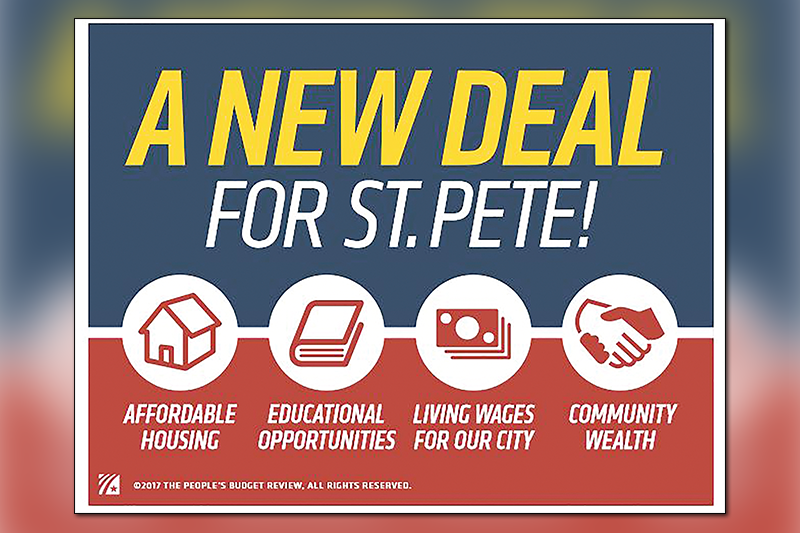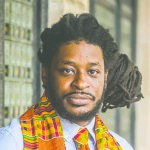A New Deal for St. Pete


 “We wanted to do things differently, we didn’t want politics as usual,” said Bro. John Muhammad, who is one of the minds behind The New Deal. He is also the president of the Childs Park Neighborhood Association and community organizer with Service Employees International Union Florida (SEIU). He wanted to help facilitate demands from residents for a community agenda and The New Deal for St. Pete is where they landed.
“We wanted to do things differently, we didn’t want politics as usual,” said Bro. John Muhammad, who is one of the minds behind The New Deal. He is also the president of the Childs Park Neighborhood Association and community organizer with Service Employees International Union Florida (SEIU). He wanted to help facilitate demands from residents for a community agenda and The New Deal for St. Pete is where they landed. Jabaar Edmond, vice president of the Childs Park Neighborhood Association and Muhammad both are volunteers with The People’s Budget Review (PBR), a coalition of community activists, local business owners, neighborhood advocates, union members, and everyday people working to ensure that all residents have a voice in the decisions that affect the well being of our communities.
Jabaar Edmond, vice president of the Childs Park Neighborhood Association and Muhammad both are volunteers with The People’s Budget Review (PBR), a coalition of community activists, local business owners, neighborhood advocates, union members, and everyday people working to ensure that all residents have a voice in the decisions that affect the well being of our communities.